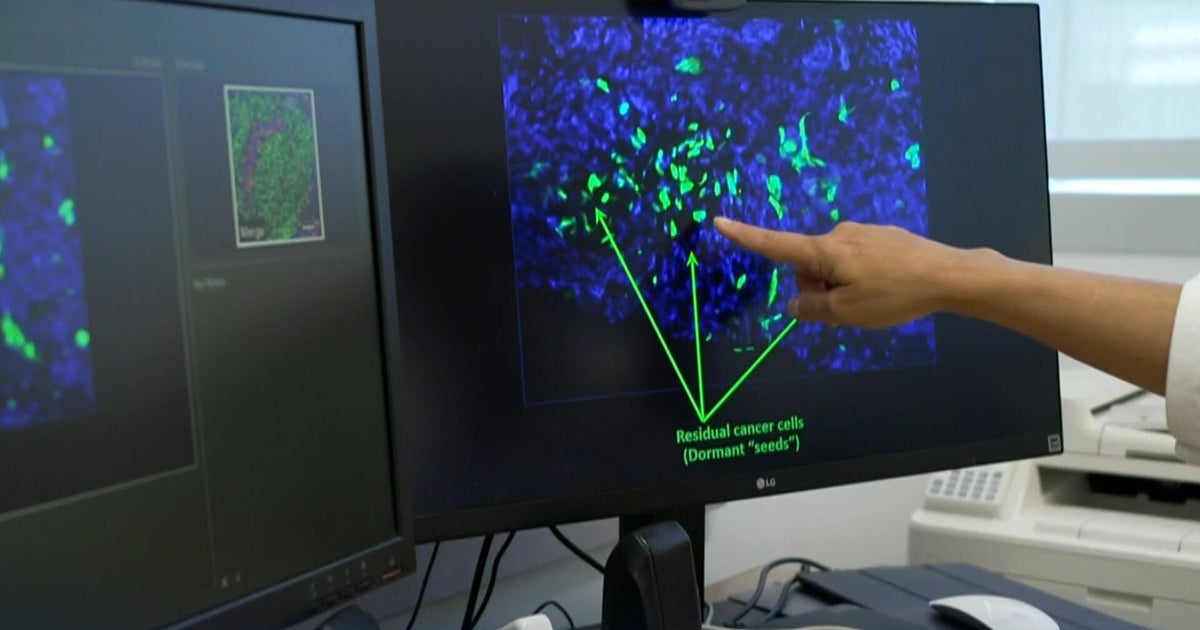
Researchers seek to halt recurrence of breast cancer by targeting dormant “sleeper cells”
Pottstown, Pennsylvania — Illeana Casiano-Vazquez and her husband Sam cherish every minute together. Six years ago, she was diagnosed with triple-negative breast cancer, an aggressive form of the cancer that has fewer treatment options and a higher rate of recurrence.
“The first thing I thought about were my boys,” Casiano-Vasquez told CBS News. “So, in the same feeling of, ‘Oh my God, am I going to die?’ sort of was this immediate like, ‘I’m not going to die.'”
Chemotherapy and a double mastectomy eliminated signs of cancer. But naturally, she is still worried.
“The mental struggle that comes with the fear of recurrence is real and strong,” Casiano-Vazquez said.
Dr. Angela DeMichele, Casiano-Vazquez’s oncologist and a professor at the University of Pennsylvania School of Medicine, told CBS News that Casiano-Vazquez had a 25% chance that the breast cancer would come back within five years.
DeMichele co-leads a team at Penn conducting a clinical trial that identifies and targets breast cancer “sleeper cells,” which are cells that break away from the main tumor and can resurface later to spread cancer throughout the body. They published their results last month in the scientific journal Nature Medicine.
“The way that we follow patients, we are not going to, right now, find the cancer until it’s already found its way to another part of the body, and by that time it’s incurable,” DeMichele explains. “So our goal was to find a way to identify the cells that actually were lurking.”
There were sleeper cells in Casiano-Vazquez’s bone marrow, so DeMichele gave her drugs to attack the cells.
DeMichele said that after six months of treatments, doctors were “so thrilled we could no longer see these dormant cells in her bone marrow.”
There were 51 women in the Penn School of Medicine trial. After seven years, only two people saw the cancer come back, far below the expected rate, according to DeMichele.
“The next steps are to take this to larger trials to confirm this, and then to really see if this could also apply to other cancers,” DeMichele said.
Casiano-Vazquez counts herself incredibly fortunate to have time with her now-teenage boys and their family rock band. She’s now part of a follow-up study at Penn.
“The only chance I have is if this clinical trial continues to work,” Casiano-Vazquez said. “It’s a chance that other women have, to give them hope that it won’t come back.”
First Appeared on
Source link






